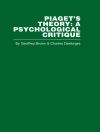The definitive work on a groundbreaking study, this essential volume provides a coherent picture of the complexity of development from birth to adulthood. Explicated are both the methodology of the Minnesota study and its far-reaching contributions to understanding how we become who we are. The book marshals a vast body of data on the ways in which individuals’ strengths and vulnerabilities are shaped by myriad influences, including early experiences, family and peer relationships throughout childhood and adolescence, variations in child characteristics and abilities, and socioeconomic conditions. Implications for clinical intervention and prevention are also addressed. Rigorously documented and clearly presented, the study’s findings elucidate the twists and turns of individual pathways, illustrating as never before the ongoing interplay between developing children and their environments.
Cuprins
I. Understanding Development
1. The Challenge
2. A Perspective on Development
3. Inception
4. The Follow-Up Strategy
II. Development and Adaptation
5. Adaptation in Infancy
6. Adaptation in the Toddler Period: Guided Self-Regulation
7. Adaptation in the Preschool Period: The Emergence of the Coherent Personality
8. Adaptation in Middle Childhood: The Era of Competence
9. Adaptation in Adolescence: Autonomy with Connectedness
10. The Transition to Adulthood
III. Development and Psychopathology
11. The Developmental Process
12. Behavioral and Emotional Disturbance
13. Clinical Implications
14. The Tasks Ahead
Appendix A. Longitudinal Study Assessments
Appendix B. Life Stress Scale
Appendix C. 12-Month Interview
Appendix D. Tool Problem-Solving Task Ratings: 24 Months
Appendix E. Teacher Nomination Procedure
Appendix F. Capacity for Vulnerability: Camp Reunion Rating
Appendix G. Selected References by Topic
Despre autor
L. Alan Sroufe, Ph D, is the William Harris Professor of Child Development at the University of Minnesota, where he is also Adjunct Professor of Psychiatry. He is a member of the Society for Research in Child Development and is on the editorial boards of three professional journals. An internationally recognized expert on early attachment relationships, emotional development, and developmental psychopathology, Dr. Sroufe has published six books and more than 100 articles.
Byron Egeland, Ph D, is the Irving B. Harris Professor of Child Development at the University of Minnesota and Codirector of the Irving B. Harris Training Center for Infant and Toddler Development. He is on the board of directors of a number of national organizations, including Prevent Child Abuse America. Dr. Egeland is widely published in the areas of child maltreatment, developmental psychopathology, and prevention programs for high-risk families.
Elizabeth A. Carlson, Ph D, is a Research Associate and Instructor in the Institute of Child Development at the University of Minnesota. She has published numerous papers on early experience and emotional and behavioral disturbance, the internalization of experience, and the mutual influence of representation and experience. Dr. Carlson is internationally recognized as a trainer in infant attachment assessment.
W. Andrew Collins, Ph D, is Morse-Alumni Distinguished Teaching Professor of Child Development and Psychology at the University of Minnesota. He has written widely on mass media influence, parent-adolescent and peer relationships during adolescence, and romantic relationships in early adulthood. Dr. Collins currently serves as Chair of the Scientific Advisory Board for the NICHD Study of Early Child Care and Youth Development.












